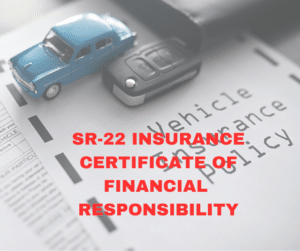DUI investigations are somewhat unique in that an officer is trying to find probable cause for your arrest with your help. And, even though the officer is doing an active investigation with your help, you are not actually in custody. For that reason, there is no need to read Miranda Warnings until the officer feels like the evidence collected (including your statements) sufficiently warrant the arrest.
At the point Miranda is read to you, the case is essentially ready to hand over to the Prosecutor. Usually, the officer will still want to collect a breathalyzer or blood sample but most people will do that voluntarily because Washington is an implied consent state. This means, if you don’t submit to the breathalyzer, you are automatically suspended for what is termed a “refusal.” This is a mandatory suspension by DOL regardless of the outcome of your criminal case.
Avoid creating problems during a DUI stop
While a DUI investigation is tricky and many people make incriminating statements without intending to do so, citizens can be aware of certain aspects of a DUI investigation to protect themselves.
1. Remain Silent. While you can’t be completely silent, you do not need to answer “extra” questions. You should hand over your driver’s license, registration, and proof of insurance but you should not make “small talk” or think that your friendliness will get you out of an investigation. Every statement that you make will be included in the police narrative that is included in our discovery. Even the most innocuous statements will be used against you in the affirmative or used to prevent you from asserting a defense. CLICK HERE to learn more about how your statements can be used against you.
2. Keep your license, registration, and proof of insurance in an easy to reach location. If you have to get out of the car to get your purse and retrieve the license, the officer is likely to make notes (not in your favor) about your body mechanics, movement, anxious or “fumbling” behavior. Even on cases where our clients had no alcohol, the report will always state that the officer “smelled an odor of intoxicants” or that you slurred your speech while asking to retrieve your purse in the back seat. Whenever possible, make your initial stop as uneventful as possible. Simply hand over the required items and do not make a comment.
3. Don’t answer unnecessary questions. If you are asked about where you came from, where you are headed, or whether you are on medication, you are not required to answer those questions. You can simply ask if you are under investigation and, if so, you would like to remain silent for the duration of the stop. This requires the officer to build a case against you without your help! This does not mean you will avoid being arrested but it makes it more likely you won’t be convicted.
4. Don’t fall for fake promises! Often, officers will say things like, “If you’re cooperative, you won’t get into trouble” or “I know you aren’t impaired but I just have to ask a few questions.” This induces the driver to start talking again and make incriminating statements. You are not allowed to lie to law enforcement without a legal consequence but an officer can lie to you. Lying is considered an investigation technique. Just remain silent regardless of what is “promised” to you. Do not suggest that you live a few blocks away or someone can come pick you up—those statements can be used to suggest guilt that you know you are impaired. Just keep quiet and wait to find out if you are going to actually be arrested.
5. If you are arrested, do not be aggressive or argumentative. The moment of being arrested comes as quite a shock for most people. It is the first time you have every been in trouble with law enforcement and you may have the urge to act out in shock. Do not act out! Again, remain silent and physically cooperative. Every statement that you make will be included in the police narrative.
6. Do not refuse the breathalyzer if you would like to be able to drive. As stated before, Washington is an implied consent state and you are automatically suspended if you refuse the breathalyzer. As a side note, if the officer mentions that you can have counsel to discuss the issue and dials the public defender, you better make sure the person is familiar with the implied consent laws in Washington. Many “on call” public defenders are new law school graduates who attended schools in other states. While they should know all of the laws in the State of Washington, most lawyers learn through experience. In this case, mistakenly telling you that it doesn’t matter whether you “blow” (which is true in many states) will have very bad consequences for you and that inaccurate advice will not be considered by the prosecutor. It is also important to understand that you do not have much time to think about the breathalyzer test. If you seem to be hesitating about taking the breathalyzer (even briefly), the officer can terminate the process and just write it down as a refusal. CLICK HERE to learn more about the Implied Consent statute.
7. If you are in custody and brought to court for your Arraignment, do not attempt to plead guilty. In most courts, a judge will not allow you to plead guilty at Arraignment but don’t even think about it. Some people want to “explain their situation” and ask the court for mercy because they are immediately pleading guilty. This will not happen. Prosecutors and Judges handle thousands of DUIs a year and are desensitized to any excuses. There will be no mercy. A prosecutor’s “success” is typically determined by statistics surrounding convictions and they will only appreciate the fact that you made it easy to add to their “win” column.
8. If you are booked into jail and released, you must return to the courthouse for your hearing. Do not miss court for any reason! If you miss your court date, you will likely face additional criminal charges and will make it nearly impossible to negotiate your DUI charge in a favorable way.
9. Find experienced counsel. This cannot be overstated. You may have an amazing Family Law lawyer but she likely has no business handling your DUI case. Attorneys don’t technically “specialize” but they certainly have their strengths. The more you handle one type of case, the better you are. If you can find a criminal defense attorney who is a former prosecutor, has taken 100+ cases to trial before a jury, and understands the local rules and practices of where you are charged, that should be a good start. Be careful about lawyers who practice outside of the county where you are charged. Some are fine but others make it quite obvious that they don’t know what they are doing. We often see big firms out of Seattle or Tacoma send inexperienced lawyers to Kitsap County because the more well-respected attorneys don’t want to travel outside of their regular practice area. Unfortunately, the inexperienced “newbie” doesn’t know how to prepare the forms nor understand the local procedures. This is not a good sign to the prosecutor and does not bode well for your case.
10. Send in your request for a DOL hearing. If you fail to submit your request by the deadline, you will be automatically suspended!
11. Do not compare your case with anyone else’s case. A DUI case is so fact specific that it is impossible to compare the process or the result. Even in the same county, courthouse, and with identical blood alcohol levels, defendants will end up with different results. The prosecutor assigned to your case makes a difference. Your criminal history makes a difference. Whether you were argumentative makes a difference. Whether you remained in custody or were booked and released makes a difference. The way the officer wrote the report makes a difference. Whether you made any statements (even when you thought they made you look better) makes a difference. Whether you performed field sobriety tests makes a difference. Whether there is a breathalyzer or blood result makes a difference. There are so many aggravating or mitigating factors that it is pointless to compare your case to someone else’s situation. You will become more frustrated and anxious by listening to people who are not criminal defense lawyers and who are not reading your particular discovery packet. Save yourself the headache and keep communications regarding your case solely between you and your attorney.
12. Finally, be completely honest with your lawyer. Do not omit important “bad” facts. Being arrested can be embarrassing and it can also bring up fears about past criminal history. For that reason, some clients will try to hide bad facts or fail to mention that they had a prior DUI in another state. Your attorney must know all of the bad facts! Even if your past criminal history wasn’t discussed at Arraignment and you think your past DUI won’t come up, you are wrong. A thorough criminal history will eventually be run and any arrests or convictions will be available for the prosecutor to see. If your attorney presents your defense as a “first time mistake” and then, in court, learns that you have past history, you can forget about any deal from a prosecutor or any jury believing your defense. Always be truthful and forthcoming with your attorney. Often, with enough notice, bad facts can be minimized by an experienced criminal defense lawyer.
Learn more about DUI charges in Washington State
Take Your Criminal Charge Seriously
A DUI charge is a very serious situation that can have lasting impacts on your personal and professional life. If you were diagnosed with cancer, you wouldn’t leave it to chance that things would work out. You wouldn’t delay in getting help. You would seek out the best and most experienced help to get you through that crisis. The same should be true for a legal challenge. Don’t leave your future to chance and don’t delay.
Being charged with DUI is not a hopeless situation. We have a 96% success rate with DUI charges in getting them dismissed or reduced to a lesser charge.
We are available 7 days a week. If you have a Kitsap County or Thurston County (or cities within) DUI charge, call or office day or night at (360) 792-1000.

Get help now
Whether you choose to handle your case alone or engage the Witt Law Group, being informed and prepared is essential. Early involvement of an attorney can significantly impact your chances of a fair recovery, allowing you to focus on healing while we handle negotiations with insurance adjusters to secure fair compensation for your injuries.




